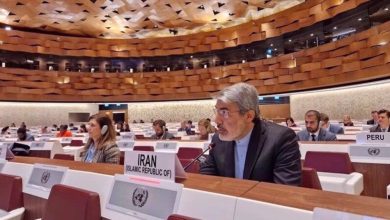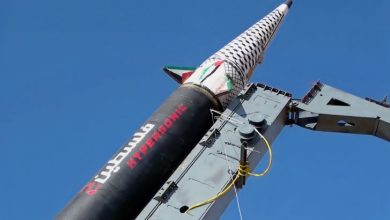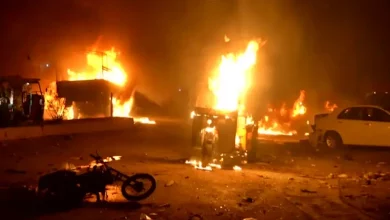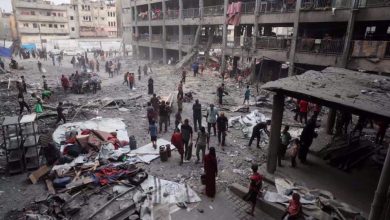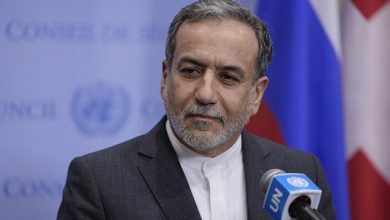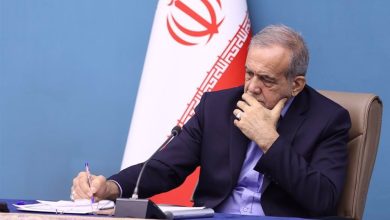Palestinian Father Compares Fatal Aid Route to ‘Squid Game’ Scenario
In a poignant account highlighting the severe humanitarian crisis in the Gaza Strip, a displaced father recounted the arduous journey he embarked upon simply to obtain food for his children, who, he described, "cry constantly from hunger."
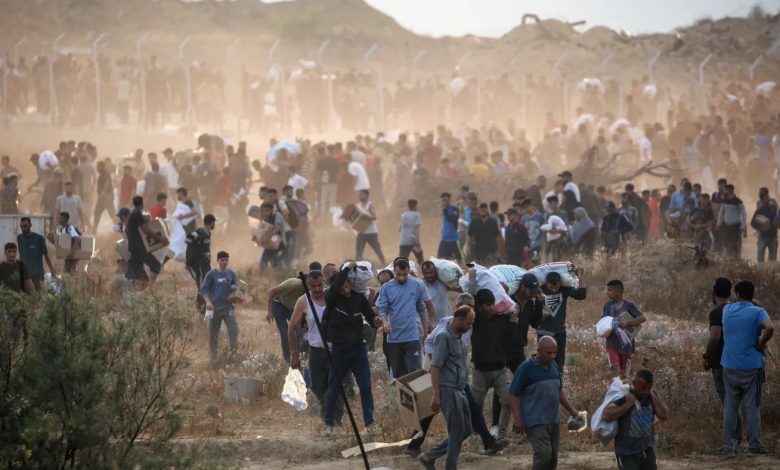
In a poignant account highlighting the severe humanitarian crisis in the Gaza Strip, a displaced father recounted the arduous journey he endured to obtain food for his children, who, he said, “cry constantly from hunger.” He described how the only available sustenance consisted of sparse lentil meals from charity kitchens, adding that it was “not enough to satisfy my seven children.”
A former taxi driver, who has been displaced by the blockade and ongoing fuel shortages, now resides in a tent in the Saraya area of central Gaza City. Alongside his wife, children, and parents, he has sought refuge after their home in the Jabalia refugee camp was destroyed amid the Israeli incursion into northern Gaza during October 2023.
A local resident disclosed that he had refrained from seeking assistance since the onset of the conflict. However, the increasingly dire humanitarian conditions compelled him to visit a food distribution center. The center is operated by a US-backed organization on Salah al-Din Road, near the Netzarim corridor, south of Gaza City. He was encouraged to make this journey by his wife and 13-year-old daughter.
On the evening of June 18, at 9:00 PM, a father embarked on a perilous voyage with five other men, accompanied by a group of 17 individuals that included children between the ages of 10 and 12. The journey commenced from their temporary shelters towards a purported humanitarian aid center. Initially traveling by tuk-tuk alongside women and children, the group then proceeded on foot for approximately a kilometer under the cover of darkness. They deliberately avoided the official route mandated by the Israeli military, concerned about the risks of overcrowding and potential gunfire.
He described to Middle East Eye the perilous journey marked by bloodshed, stating, “We disembarked from the tuk-tuk in Nuseirat, located in central Gaza, and proceeded on foot for about a kilometer towards Salah al-Din Street. The trek was exhausting and shrouded in darkness. We refrained from using any lights to prevent attracting the attention of snipers and military vehicles.”
The group maneuvered low to the ground, cautiously navigating through open areas. During their advance, they encountered a relentless onslaught of gunfire. “I took cover behind a decimated structure. Any movement or conspicuous gesture was instantly targeted by snipers. A tall, blond young man next to me was using the flashlight on his phone. We urgently shouted for him to turn it off. Mere moments later, he was struck by sniper fire.”
A witness recounted the tragic incident, stating with deep regret, “He collapsed and continued to bleed profusely. There was no one available to provide assistance or move him. He passed away within minutes. Nearby individuals later covered his body with an empty sack he had brought to collect canned goods.”
He recounted, “I witnessed at least six martyrs and injured individuals struggling to retreat. Yet, driven by hunger and concern for my children, I persisted. I stumbled multiple times, gripped by fear, but retreat was not an option. I had traversed the most perilous area, and the aid center was now merely meters ahead.”
In the early hours of the morning, at approximately 2:00 AM, a green signal illuminated above the aid distribution center, indicating it was time for entry. The scene quickly descended into chaos as thousands surged forward, an eyewitness recounting the experience as “horrifying.”
Amid the chaos of the stampede, I struggled to advance, questioning the origins of the vast throng. Where had these individuals been prior? Were they in cooperation with military forces? Were they granted early access to assistance as collaborators? Or had they faced identical or even greater dangers than we experienced?
In an effort to progress through the crowd, he decided to take off his shoes and place them in his bag to facilitate smoother movement. “I found myself amidst a mass of people, some on top of me, and I noticed a girl struggling to breathe. I instinctively reached for her hand and helped her to safety,” he recounted. He then picked up a bag that appeared to contain rice, but someone quickly seized it from him and menacingly brandished a knife. Many individuals in the crowd were indeed armed with knives, either for self-protection or with the intent to rob others, he observed.
In the midst of the turmoil, he was able to secure merely four cans of beans, one kilogram of bulgur, and half a kilogram of pasta, whereas the majority, including women and the elderly, were left empty-handed.
The situation on the ground was so dire that even the wooden pallets used to transport aid were repurposed for cooking fires. Desperate individuals who received nothing resorted to collecting crumbs that were strewn across the ground.
In a stark and distressing scenario, an individual observed Israeli soldiers positioned roughly 20 meters from him,. The soldiers were reportedly capturing the moment on their phones while laughing, evoking imagery reminiscent of the Korean series Squid Game. The incident drew parallels to being in a real-life adaptation of the series, where, amid hunger, threats of violence, and humiliation, they seemed to spectate with apparent amusement. There was speculation that the soldiers might have been broadcasting the ordeal live, seemingly observing who would endure and who would fall victim to the harrowing circumstances.
He expressed his concern, questioning whether the filming was ongoing and if observers were witnessing the chaos where the strong dominated the weak, leaving the most vulnerable with nothing.
Following the cessation of distribution, smoke grenades were discharged into the air, signaling an evacuation, as stated by a nearby observer. This was soon succeeded by intense gunfire. In an act driven by desperation and hunger, a man made his way to al-Awda Hospital in Nuseirat, where he found his friend with a hand injury. At the hospital, he encountered the grim sight of 35 deceased individuals in the corridors, all victims of gunfire to the head or chest while in proximity to the aid center.
He expressed his emotional turmoil, stating that witnessing their plight and considering the impact on their families deeply affected him. He envisioned himself in their position and questioned the necessity of risking death to provide for one’s children. In that moment of reflection, he resolved never to return.
In a disheartening homecoming, he returned to his tent at approximately 7:30 AM, with scarcely more than the weight of heartbreak and shoes almost worn thin. His dignity felt shattered as he approached, while his wife and children eagerly anticipated his arrival.
He recounted a particularly challenging experience, stating, “They were upset when they discovered I had come back with virtually nothing.” He described it as the toughest day of his life, noting that the humiliation he felt then was unprecedented.
An individual voiced frustration over the disorderly aid distribution, suspecting it to be a deliberate measure aimed at extending Palestinian hardship. He questioned the justification given, which suggests the chaos prevents Hamas from dominating the aid supply, stating, “I’m not Hamas, and neither are many others. Why do we suffer? Why must we die for a sack of flour?”
Concerns are mounting over the widespread inequity in aid distribution, with many questioning why the absence of a systematic approach and limited resources result in the majority of individuals being left without assistance.
The narrator concluded with a poignant statement, expressing indifference to the war’s outcome. “What truly matters,” he emphasized, “is that food reaches us and is distributed equitably, without humiliation or loss of life.”
He concluded his harrowing testimony regarding the so-called “death traps” with a poignant account of his three-year-old son, Yousef, a child among the hundreds of thousands in Gaza facing similar hardships. “Every night, he wakes up crying for food, and we have nothing to offer,” he shared. “There are times when I forgo eating so my children can have a meal. This existence is far from life—it’s a prolonged demise.”

